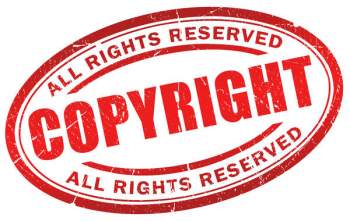
Your Guide to Copyright Registration

Popular In Copyright
Copyright Law Copyright Infringements What Is Copyright Legal Consequences Of Plagiarism Copyright Free Image Florida Prepaid Postsecondary Education Expense Board V College Savings Bank Famous Cases Of Copyright Law Copyright A Book Library Of Congress Copyright Copyright Laws For Motion Pictures Copyright Infringement Punishment Copyright Symbol
Copyright registration exists for the sole purpose of keeping
records of copyrighted works or materials. The proper registering of a
copyright is not necessary in the actual ownership of a copyright. Copyright is
an inherent international right for an individual as provided under the Berne
Convention Implementation Act of 1988, as well as the
Copyright Act of 1790 under United States legislation.
Though copyright registration is not necessary or required for securing a copyright, it is strongly recommended for published or commercially-distributed works, for it protects the copyright owner from infringement violations. Under law, it is necessary for a published work to be registered in order be eligible or able to file a lawsuit concerning copyright infringement.
Copyrights can be registered by
filing an application with the United States Copyright Office. The application itself has its proper
requirements regarding the necessary materials and information regarding the
work or material being submitted for registration.
Copyright Deposit
Copyright deposit is the mandatory legal requirement of the actual
submission of copies of actual works or materials that are being considered for
copyright registration. Copyright deposit is part of the copyright registration
process and is legally required in order to verify that the works or materials
are eligible to be copyrighted.
The copyright process itself
may prove to be challenging for it provides for different guidelines depending
on the context or nature of the work being submitted for review and eventual
registration. Because copyright registration is not necessary to obtain a
copyright, it also directly applies to copyright deposit, for it only is
necessary for the registration process. Individuals that have the intention of
publishing or commercially distributing their works are required to register
and deposit the appropriate copies as part of the process.
In certain cases, the United States Copyright Office may make
exemptions regarding the materials that are required to be deposited. An
example would be an individual seeking the copyright of a limited edition
sculpture, where the deposit of a copy would prove to be a burden if only a single
copy exists and is considered a valuable piece of art, thus making it unfair
for the artists to be mandated to make a deposit. In such a case, the copyright
office may simply ask for visual proof, such as photographs, for the
registration process.
Preregistration
Preregistration is a relatively new process instituted by the
United States Copyright Office that is meant to further protect individuals
from copyright infringement. The preregistration option exists for those works
that are currently under production or have begun produced and are unfinished,
with the intention of publication or commercial distribution or availability of
said work.
Preregistration allows for the
work to be protected as it is completed, for under regulation provision of copyright
law a work must be first published and registered to allow for a proper
copyright infringement lawsuit to be filed.
Preregistration is offered to those who seek to register certain
types of works such as motion pictures, music recordings and compositions,
sound recordings, computer programs, video games, and literary works to be
published in book form. Preregistration is not necessary and does not replace
the original copyright registration progress. It only exists for further
protection and consideration of the owner of the copyright and the work itself,
and if preregistered, must undertake the regular registration process once the
work is completed and published as mandated by copyright law.
Copyright Application
The copyright application is provided by the United States
Copyright Office and is necessary to be completed in order to begin the
copyright registration process. Copyright applications are available through
the Copyright Office's website in various forms. The Copyright Office strongly
encourages and recommends application through the eCO, or Electronic Copyright
Office, which provides for an electronic application.
The eCO application allows for the copyright application and registration process to be more efficient and is simpler and more cost effective for the person submitting the application. However, because of the nature of the copyright registration process, only certain types of works or materials are eligible for the eCO application. Some may choose the electronic option, but must also print out a Shipping Slip so they can submit copies of their work that cannot be processed or submitted online.
Paper applications are also
available online as well. An individual may fill out the form on screen and
print it out in its completed form to be submitted with the proper copies of
the works being considered for copyright registration.
How to Register a Copyright
The copyright registration process can be a slightly tedious
process, depending on the option employed by an individual seeking to register
a work or type of material. The United States Copyright offers both online and
paper methods for the application process to be considered for the person's
convenience and preference, as well as to meet the certain requirements imposed
by the Copyright Office and registration process. Only certain types of
materials or works can be considered eligible for an online application. However,
the paper applications are available to be printed out on the Copyright Office's
website as well.
For certain types of works, the application can be completed and submitted electronically, and the actual submission the work's copies can be shipped to the Copyright Office via mail separately. The paper application process will naturally take longer than the electronic version and also prove to be less cost effective. However, depending on the nature of the work or material being registered, it may prove to be the only viable option.
An individual must then obtain the proper application form, which is categorized depending on the nature of the work. The application processes all institute a filing fee that must be submitted with the application form, regardless of which method is employed, electronic or traditional paper.
NEXT: Copyright Infringment





















